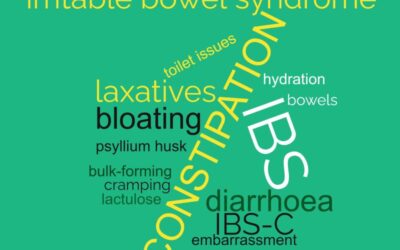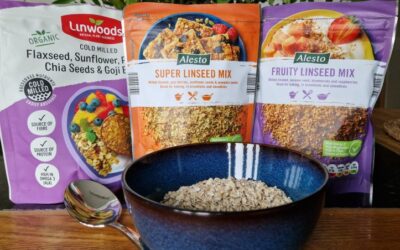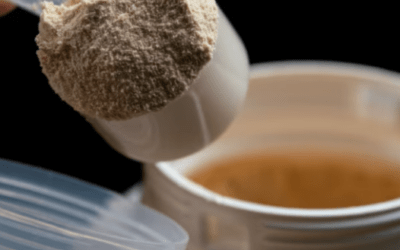People often ask “Is constipation a symptom of IBS? The simple answer is yes, it can be. If you have other IBS symptoms too, see more information here, but if constipation is your ‘thing’ then read on….
Constipation brings with it feelings of bloating, pain, lethargy and can affect social life and concentration at work. For some these symptoms are transient and remedied by some dietary changes, an increase in fluids and some moderate exercise. However, for those with IBS-C, these symptoms can be more constant ‘companions’. A question I’m often asked though is “should I visit my GP?”.
When should I see my doctor?
The simple answer is: if your bowel habits change suddenly, you have blood in your stools or you have sudden weight loss it would be sensible to see your doctor as soon as possible. If you’ve had IBS symptoms for some time, then your doctor may suggest some investigations to rule out other causes for your symptoms. These may be blood tests to detect deficiencies or gluten sensitivity (coeliac disease, for example). If these are inconclusive or you have other risk factors, you may be referred to a gastroenterologist for a colonoscopy or endoscopy. Try not to worry though, as a diagnosis of IBS is usually made by ruling out other conditions.
Are you eating regularly?
So, if you suffer from constipation I’d advise trying a few things. Firstly, make some changes to your diet. Ensure that you’re eating regularly – this is really important! Don’t miss meals, especially try to have a good breakfast. For most people breakfast is the best opportunity of the day to get in a good portion of fibre. I’d suggest porridge or other oat-based cereals such as Oatibix or Oatiflakes. These contain a good amount of fibre, but adding some milled linseeds (or flaxseeds as they are sometimes called) can really up the fibre. I have some great suggestions on my website for low FODMAP breakfast ideas.
Useful tips for adding in tasty fibre
So, if constipation is your thing, then try some milled linseeds. These are available from most stores, even the discount supermarkets and are usually ground up with pumpkin and sunflower seeds, to make them even more tasty. Apart from being delicious, these add significant amounts of fibre to your diet. For example, adding 2 tablespoons of milled linseeds to 40g of porridge oats will give you ~10g of fibre. And it’s still only breakfast time! Although my favourite is adding them to porridge, they also add flavour and crunchiness to salads, yoghurts, home-baked cakes and even to an omelette. If you’re not used to having much fibre in your diet, it’s a good idea to build up gradually and to always ensure that you have a glass of water to hand.
How much fibre is in your diet?
Adults in the UK should be aiming for 30g of fibre per day. So, you can see that milled linseeds are a good way of increasing fibre. But increasing fruit and vegetable intake could also help with constipation. Aim for at least 5 portions per day of fruit and vegetables. Try homemade soups, using a variety of seasonal vegetables, great for those chilly, grey days. Leftovers can even be reheated next day as a quick work lunch. Or maybe fruit is more your preference. This could be fruit salads, smoothies or juices. The addition of milled linseeds can give a nice crunch, as well as adding in that all-important fibre.
Are you getting enough fluid?
Try recording your fluid intake for a day or two to see… An increase in fibre should always go hand-in-hand with an increase in fluids, otherwise you could make your constipation worse. So how much is enough? Well, for most people 1.5-2 litres daily should be sufficient. But in hot weather or if you do prolonged exercise, then your requirements will be greater. Handy Apps can be used to prompt your fluid intake. Increasing fluid intake would preferably include more water. But tea, coffee and other liquids can contribute too, although some will have a diuretic effect or contain large amount of calories, so should be limited. Too much caffeine may increase IBS symptoms, so maybe choose decaffeinated drinks in preference.
How about exercise?
Moving around is a good way to improve gut health and motility. This doesn’t have to be a complicated or expensive pursuit though. A daily walk will not only help with your constipation, but will also use up calories, so will aid with weight loss. Regular exercise has also been shown to have benefits to mental health, especially out in the open air. Have a modest aim at first, beginning with a 10-15 minute walk and building this up to longer walks if you feel comfortable. Remember, even a short walk is better than nothing.
What if these tips don’t help?
These simple changes will help some people, but if your IBS is more persistent, then you may need to take this a stage further. The low FODMAP diet is not a faddy diet. It’s backed up with research and has been shown to be an effective IBS treatment in over 75% of IBS sufferers. The symptoms of constipation can take a little longer to show improvement than other types of IBS, so make sure you stick with it. This diet can be a bit tricky to navigate alone and many fall by the wayside, giving up before the benefits are seen. That’s why it is always recommended to seek the advice and support of a dietitian trained in this area of work. See the many testimonials of those who have found relief.
Can the low FODMAP diet help?
The key point to note about the low FODMAP diet is that it is not for life. It should only be short-term to help you identify the triggers for your symptoms. It’s an exclusion diet, which means, with the help of an IBS dietitian, you’ll be advised to remove all the known high FODMAP foods. When symptoms have improved you’ll be guided through the reintroduction process. By following the process through to this conclusion, you’ll be able to identify foods which trigger your symptoms and those that are fine for you to eat. Then you can personalise your diet, by eating foods that you know will be fine for you, whilst avoiding or limiting other foods. It’s important to get back to a more varied diet. This will ensure that you’re getting the full range of nutrients to stay healthy.
Can I help?
I’m an IBS Dietitian based in Cardiff, but work across the UK. If you need help with the low FODMAP diet, then let’s set up a free initial telephone consultation. This will enable us to decide together whether the low FODMAP diet is for you. Take a look at the information about identifying IBS symptoms and treatment on my website. All consultations are virtual, so I can advise across the UK. Usually just 2 consultations are necessary, so call for a free initial telephone consultation today.




